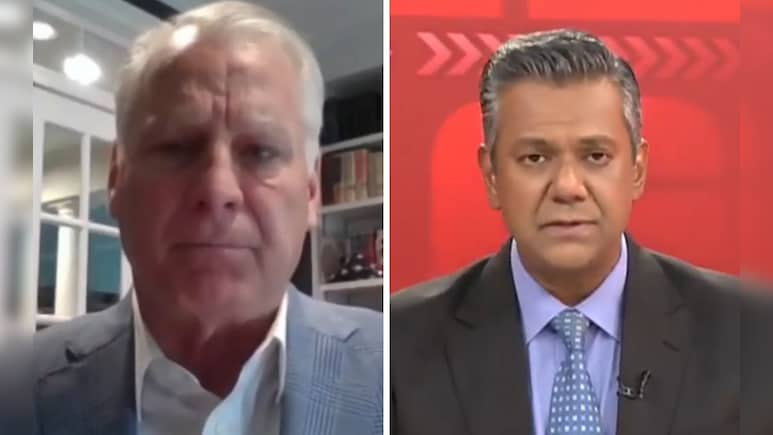
US President Donald Trump's plan to impose a massive fee on Indians seeking fresh H-1B visas could be an issue that comes back on the negotiating table once the trade deal between the two nations is concluded, former US Ambassador to New Delhi Tim Roemer told NDTV this evening.
President Trump's overhaul of the H-1B visa programme comes amid a fresh crackdown on immigration and is set to affect Indian technology companies and skilled professionals. Topping the 50 per cent tariff imposed by the US, the new $100,000 visa fee is expected to be a dampener not just on the American dream of Indian students but also the India-US ties, though for now, India has said it is studying the implications of the promised measure.
Mr Roemer acknowledged that the measure "causes a hiccup in the relationship" but said "hopefully once we get through these trade negotiations, which are going to be maybe promising... then this H-1B visa issue can be revisited".
Asked if this visa fee could be a negotiating point, Mr Roemer said he thought President Trump's imposition of the 25 per cent additional tariff -- on account of India's purchase of Russian oil -- "was a negotiating point to get people back to the table, to get the negotiations back on track, to try to make progress on a trade deal".
India, after all, has concluded successful deals with the UK, Israel and Australia. "Certainly the United States, with all we have in trade and interests and technology, chip manufacturing, clean energy, this is something we can get to. Then the president will probably look again at this H1B visa," he said.
If not, two things could happen, he explained.
"The courts could weigh in. The courts may say that the President has overextended on this H-1B visa. And the second thing is that Congress could weigh in and say, this is our purview. We are the ones that set the number of H-1B visas... We want to take back our power, and we are going to have something to say about US-India relations," he added.
Mr Roemer said allowing H-1B visas to Indians is very much in the interest of the US as well, since the students who get their PhDs and jobs and the visa, become a job multiplier, creating "hundreds, if not thousands of US jobs".
As to how this happens, he quoted a 15-year-old study by Duke and the University of California that said almost 25 per cent of new jobs in technology are created by these students, who become CEOs.
"They develop Unicorns. They create business that then creates hundreds, if not thousands, of US jobs. So that's something I hope President Trump will understand, that this is a good thing not just for US-India relations. It is a great thing for US job creation," he said.
"Manufacturing jobs are created in America by those H-1B visa people getting their Master's and PhDs and staying in America, and it creates stronger links in the diaspora between our two great countries," he added.
New Delhi has already pointed at this aspect, saying both India and the US have a stake in "innovation and creativity" on the H-1B visa holders and the two sides can be expected to "consult on the best path forward".
Underscoring how talent mobility and exchanges have benefitted both countries in terms of technology development, innovation, economic growth and wealth creation, the Foreign Ministry had said, "Policy makers will therefore assess recent steps taking into account mutual benefits, which include strong people-to-people ties between the two countries".
Track Latest News Live on NDTV.com and get news updates from India and around the world

